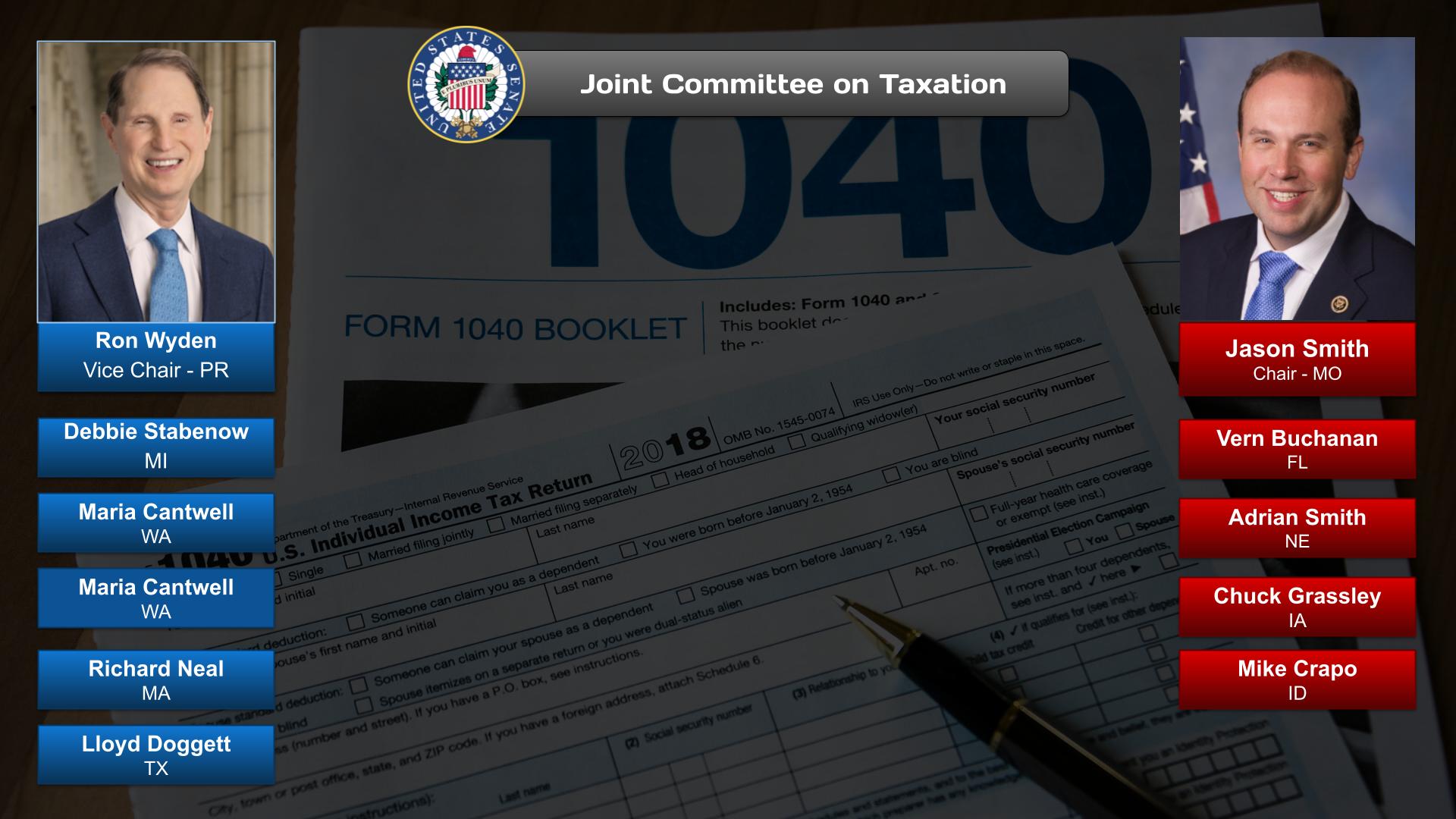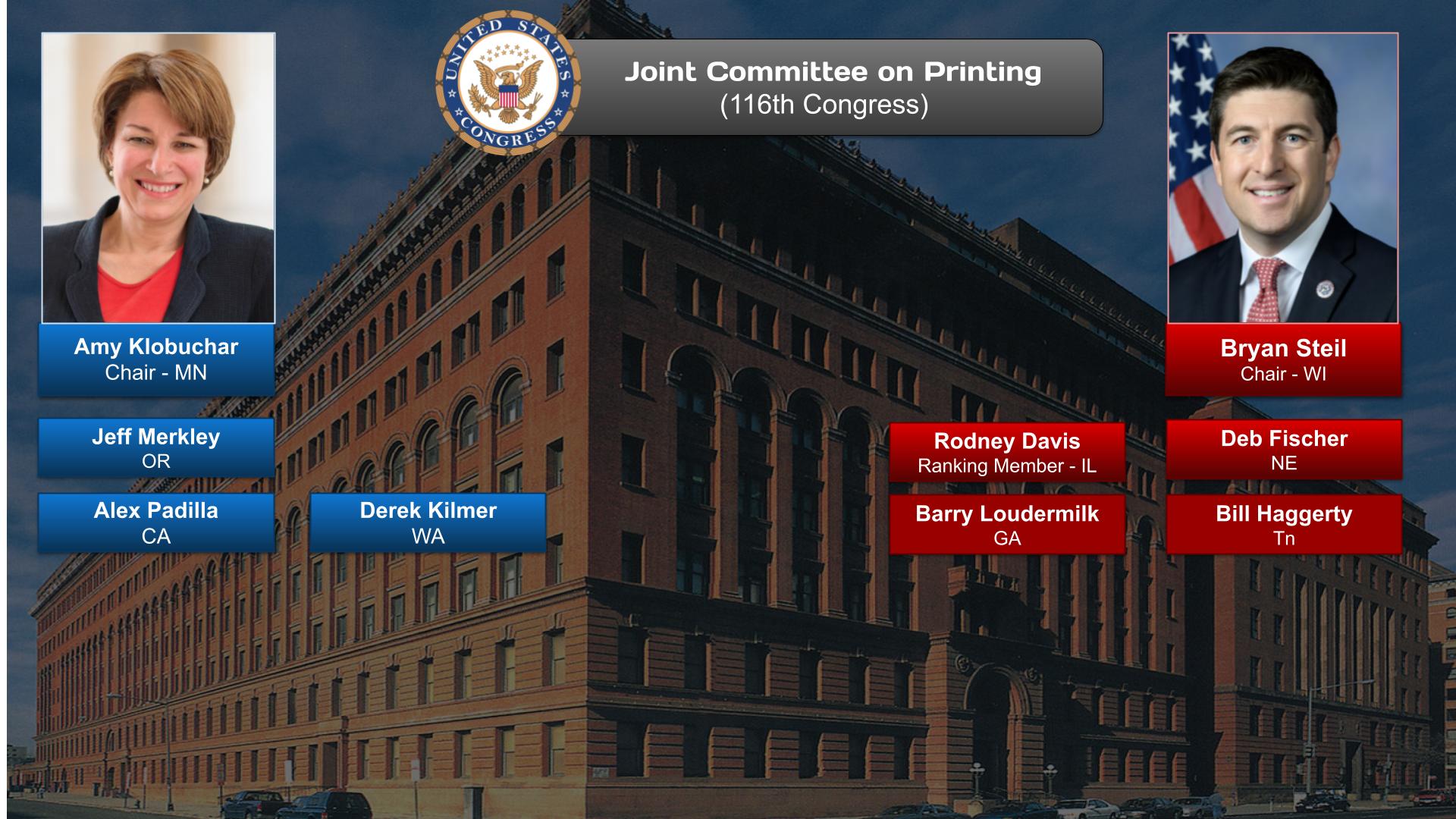Summary
The Joint Economic Committee (JEC) was created when Congress passed the Employment Act of 1946. Under this Act, Congress established two advisory panels: the President’s Council of Economic Advisers (CEA) and the Joint Economic Committee. Their primary tasks are to review economic conditions and to recommend improvements in economic policy.
Chairmanship of the Committee alternates between the Senate and House every Congress. The JEC is currently chaired by Senator Martin Heinrich of New Mexico.
Democratic Senate Members (Majority):
Martin Heinrich, New Mexico, Chair
Amy Klobuchar, Minnesota
Maggie Hassan, New Hampshire
Mark Kelly, Arizona
John Fetterman, Pennsylvania
Peter Welch, Vermont
Democratic House Members (Minority):
Don Beyer, Virginia
David Trone, Maryland
Gwen Moore, Wisconsin
Katie Porter, California
Republican House Members (Majority):
David Schweikert, Arizona, Vice-Chair
Jodey Arrington, Texas
Ron Estes, Kansas
Drew Ferguson, Georgia
Lloyd Smucker, Pennsylvania
Nicole Malliotakis, New York
Republican Senate Member (Minority):
Mike Lee, Utah,
Tom Cotton, Arkansas
J. D. Vance, Ohio
Eric Schmitt, Missouri
OnAir Post: Joint Economic Committee
News
Office of Don Beyer – October 15, 2021
WASHINGTON, D.C. — Today, the Congressional Hispanic Caucus (CHC), led by Congressman Raul Ruiz, M.D. (D-CA), and the U.S. Congress Joint Economic Committee (JEC), led by Congressman Don Beyer (D-VA), released a new report that examines the wealth disparities that threaten the economic security and opportunities of Hispanic Americans and their families.
Despite representing 19 percent of the U.S. population, Hispanic families hold just two percent of the nation’s total wealth. The median net worth of white families is more than five times greater than that of Hispanic families, and the increasing concentration of wealth at the top has widened the wealth gap between the average Hispanic and white households.
Across traditional metrics of wealth—like retirement savings, student debt and homeownership—Hispanic Americans continue to face barriers to economic security. Only about one in four have a retirement account, which contributes to Hispanics being less financially prepared for retirement on average than any other racial or ethnic group. Hispanic families are also overburdened by student debt, such that more than a decade after college entry, the typical Hispanic borrower with a four-year degree still owes nearly 80 percent of what they originally borrowed. And even as homeownership among Hispanic households has increased, it still lags behind that of white households: less than half of Hispanic families own homes compared to nearly three-quarters of white families.
This economic insecurity has left Hispanic Americans much more vulnerable to the adverse effects of economic shocks. In the aftermath of the Great Recession, the median Hispanic family lost nearly half of their net wealth. Since then, subsequent gains have failed to mitigate increasing wealth inequality between the average white and Hispanic family.
This is the second issue brief co-released by the CHC and the JEC for Hispanic Heritage Month, which began on September 15 and ends today. The first examined the contributions of Hispanic workers to the U.S. economy. Despite being among those most affected by the health and economic effects of the coronavirus and pervasive structural barriers to full economic participation, Hispanic workers are helping to drive the ongoing economic recovery and are poised to serve as catalysts of future economic growth.
About
Web Links
Jurisdiction
- Study the implications of the Economic Report of the President
- Seek ways to coordinate programs involved in the Report
- File an annual report relating to its study of these implications and programs with the Senate, the House of Representatives, and all Congressional committees having legislative duties relating to the Report
- Make other reports and recommendations to the Senate and the House as the committee members see fit
- Hold hearings on the report and other economic matters as the committee members see fit.
More Information
Wikipedia
Contents
The Joint Economic Committee (JEC) is one of four standing joint committees of the U.S. Congress. The committee was established as a part of the Employment Act of 1946, which deemed the committee responsible for reporting the current economic condition of the United States and for making suggestions for improvement to the economy. The JEC is currently chaired by Senator Martin Heinrich of New Mexico.
Jurisdiction
- Study the implications of the Economic Report of the President
- Seek ways to coordinate programs involved in the Report
- File an annual report relating to its study of these implications and programs with the Senate, the House of Representatives, and all Congressional committees having legislative duties relating to the Report
- Make other reports and recommendations to the Senate and the House as the committee members see fit
- Hold hearings on the report and other economic matters as the committee members see fit.[1]
Members, 118th Congress
| Majority | Minority | |
|---|---|---|
| Senate members |
|
|
| House members |
|
|
Source[2]
Historical committee rosters
117th Congress
| Majority | Minority | |
|---|---|---|
| Senate members |
|
|
| House members |
|
|
Source[3]
116th Congress
| Majority | Minority | |
|---|---|---|
| Senate members |
|
|
| House members |
|
|
115th Congress
| Majority | Minority | |
|---|---|---|
| Senate members |
|
|
| House members |
|
|
References
- ^ U.S. Senate. Rules and Administration Committee. Authority and Rules of Senate Committees, 2009–2010. (Senate Document 111-3) Washington, DC: GPO, 2009. p.223 See also 15 USC 1024.
- ^ “Heinrich Confirmed as Chair of the Joint Economic Committee in 118th Congress – Heinrich Confirmed as Chair of the Joint Economic Committee in 118th Congress – United States Joint Economic Committee”. www.jec.senate.gov. Retrieved 2023-04-28.
- ^ “After Vote by Members, JEC Ready to Begin Official Business for the 117th Congress”.
- ^ “Schumer Announces Senate Democratic Committee Memberships for the 116th Congress | Senate Democratic Leadership”. 13 December 2018.
- ^ Pelosi Names Members to the Joint Economic Committee
- ^ Committee, United States Joint Economic. “About – United States Joint Economic Committee”. www.jec.senate.gov. Retrieved 2017-01-08.
- ^ “U.S. Senate: Joint Economic Committee”. www.senate.gov. Retrieved 2017-01-08.
External links






